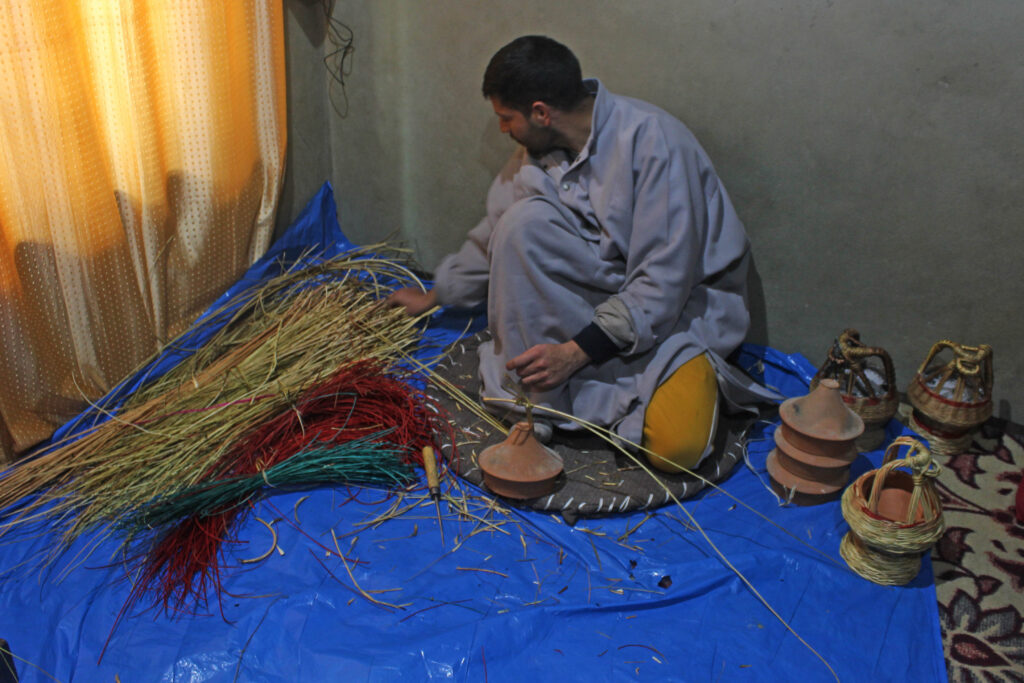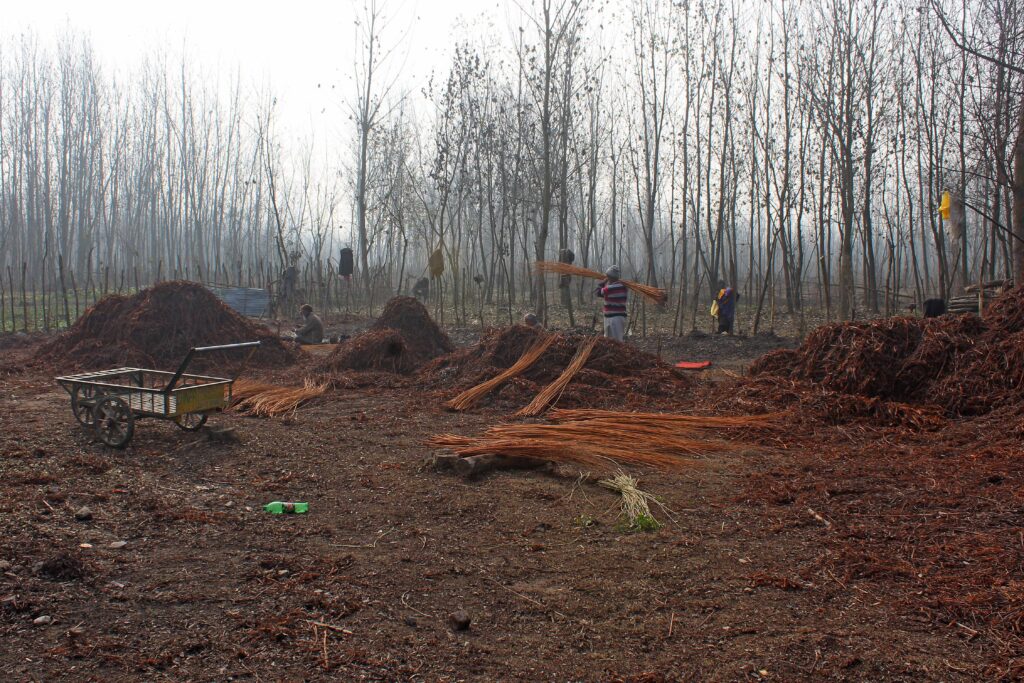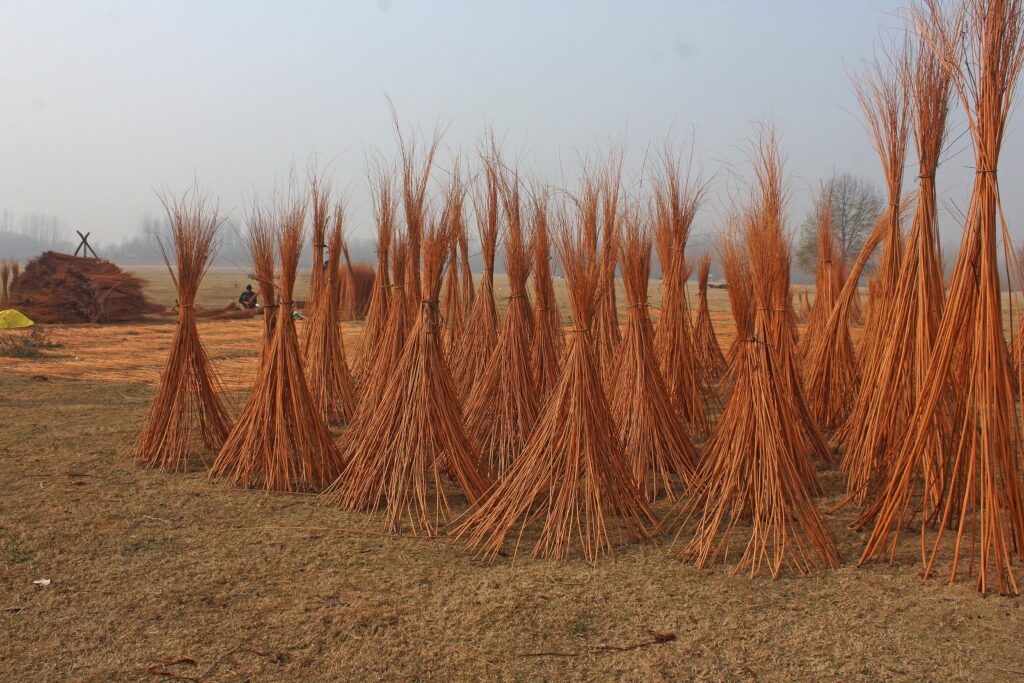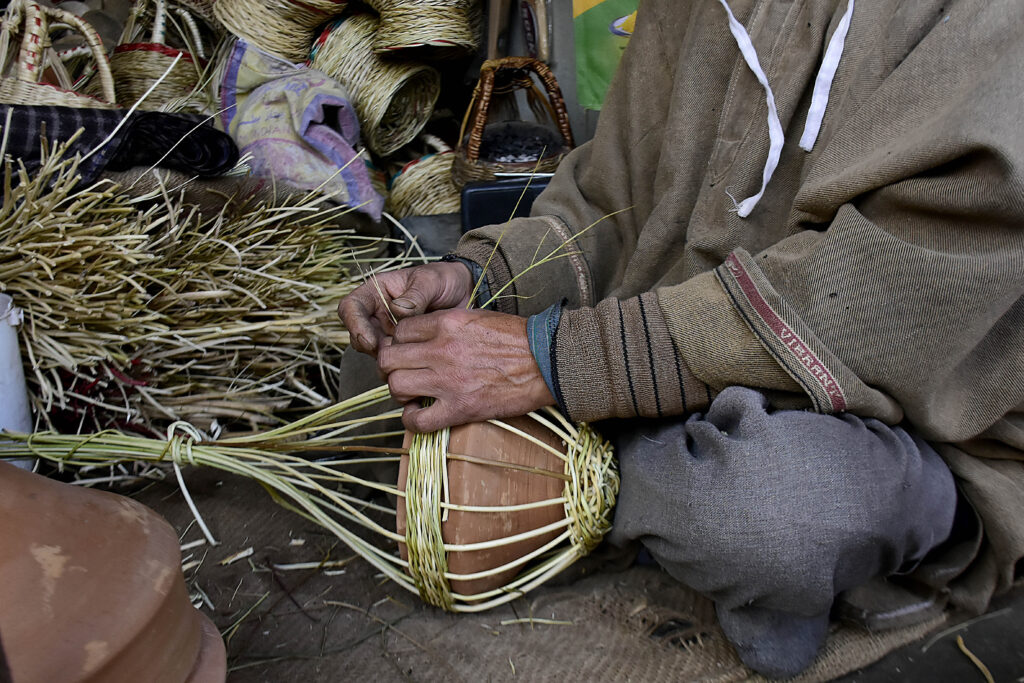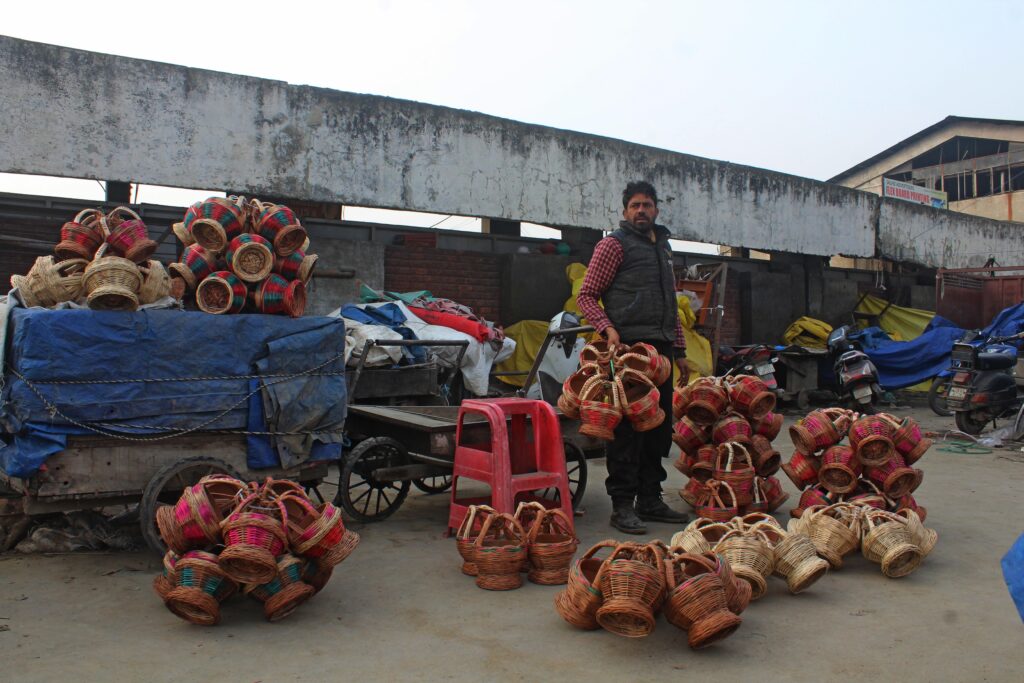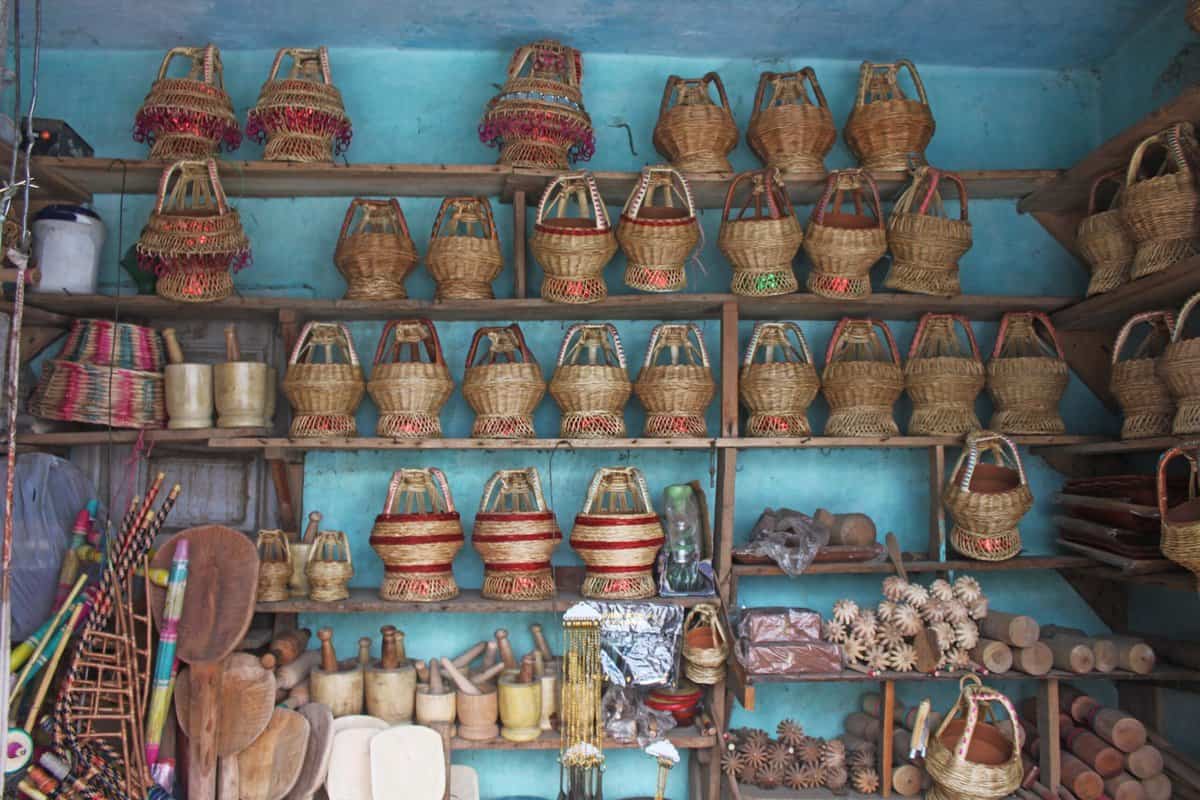
Srinagar: As Kashmir braces for a cold harsh winter, people warmly welcome the season with kangri, a traditional earthen pot used to keep oneself warm.
Kangri or Kangir is an earthen pot entwined around different kinds of wicker and filled with charcoal embers. A must-have item after food during the winter season, people carry a kangri inside their pheran (a loose garment which covers the entire body up to the knees) to keep away from biting cold.
Thirty-eight-year-old Shabir Ahmad Dar, who purchases raw wicker from farmers and processes it into the final product for sale to Kangri makers, says business blooms between November and April. “Kangri has been a part of Kashmiri culture for ages and people who know the value of it will never exchange it with modern times heating systems” he says.
Hailing from the Umerhair area of Soura in Srinagar city, along with his septuagenarian father Ghulam Qadir Dar, develop wickers from a long tedious process and sell in the market anywhere between Rs. 1,000 to Rs 5,000 per 40 kg.
“Making wicker is a long process. We purchase raw wicker at Rs 650/40 kg from farmers. It is soaked in water for 10 days in order to become soft. After that, the soft wicker is boiled in a boiler for 24 hours. This helps in the easy peeling off its rough skin. We then dry the wicker ready to sell to weavers for anything between Rs. 1,000 to Rs 5,000 per 40 Kg, depending on the weight,” Ghulam Qadir explains.
While developing a wicker is a long process, the most tedious is done by women. Fifty-five-year-old wicker contractor Ghulam Hassan Sheikh’s wife and daughter peel off the rough skin which requires a lot of skill.
In the business for almost 20 years, Ghulam Hassan Sheikh says, “My wife and daughter work for days to peel off the wicker’s rough skin. This requires a lot of skill and if you are not careful, the wicker will break and go to waste.”
“A kangri weaver cannot make a kangri unless we prepare wickers for them” he adds.
The kangris of Charar-i-Sharief in the Budgam district of Central Kashmir are the most popular and high in demand. “Mostly because of its weaving pattern and use of fine wicker which is only available in that area. A kangri maker sells between Rs 50,000 and Rs 60,000 of their fire-pots every year, earning a total of Rs 1 crore.,” Sheikh says.
Echoing Sheikh, Manzoor Ahmad Bhat, a resident of Kanil Mohalla in Charar-I-Sharief says, “A kangri from our area is known for its beautiful design as we make it with fine wicker. The rate can go for anything between Rs. 250-2500 or higher depending on the weaving pattern and size of it.”
Ghulam Rasool, a local who stopped by Srinagar’s Batamaloo market to have a look at the beautifully laden kangeris says the traditional earthen pot is non-replaceable. “People nowadays use modern heating equipment including room heaters etc, but there is no replacement for a Kashmiri kangri. It is always easy to carry, and you don’t need electricity, something which is a big civic issue in Kashmir right now,” he said.
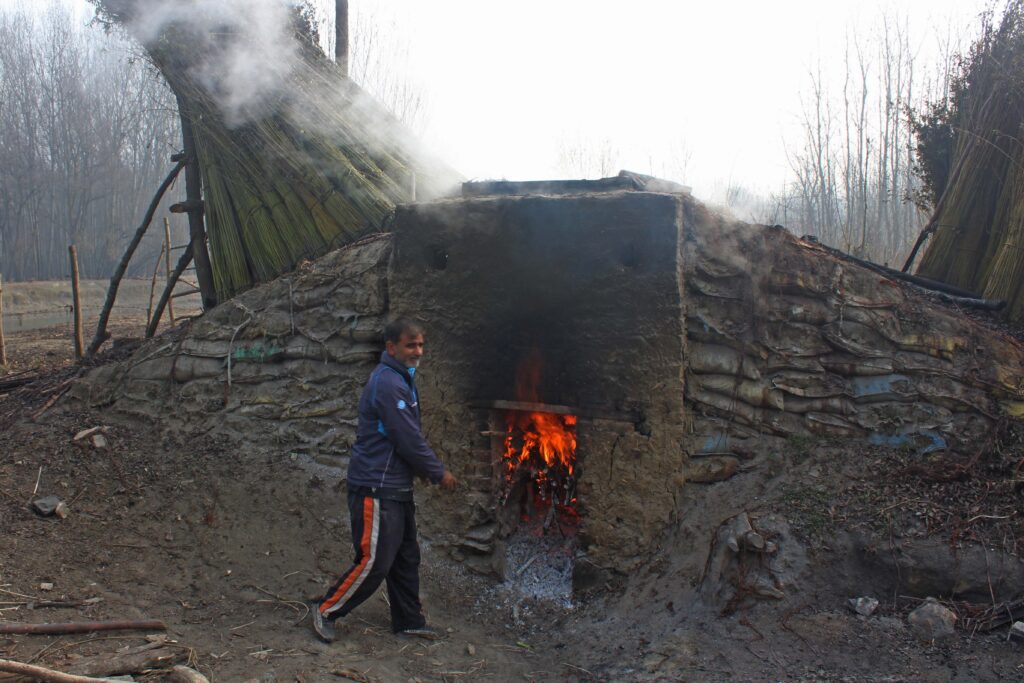
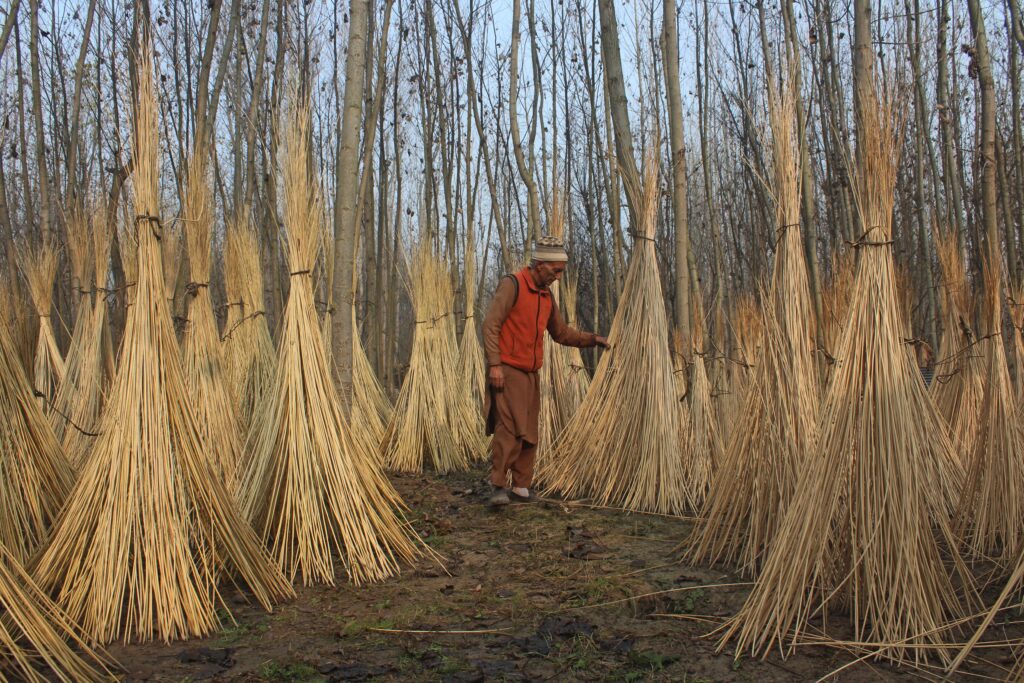
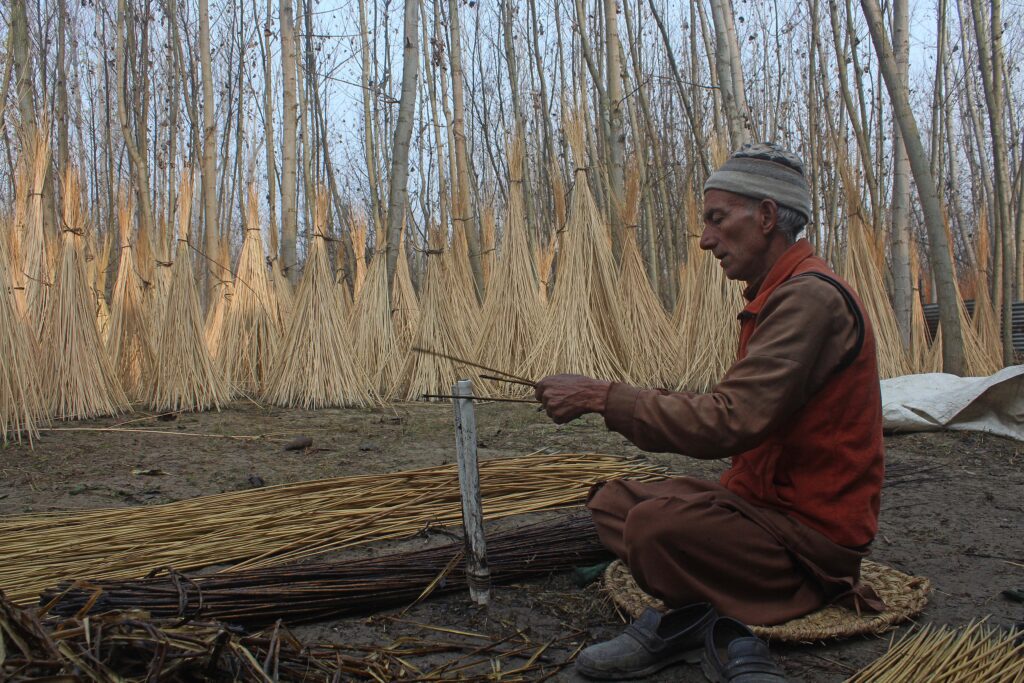

Soura in Srinagar City
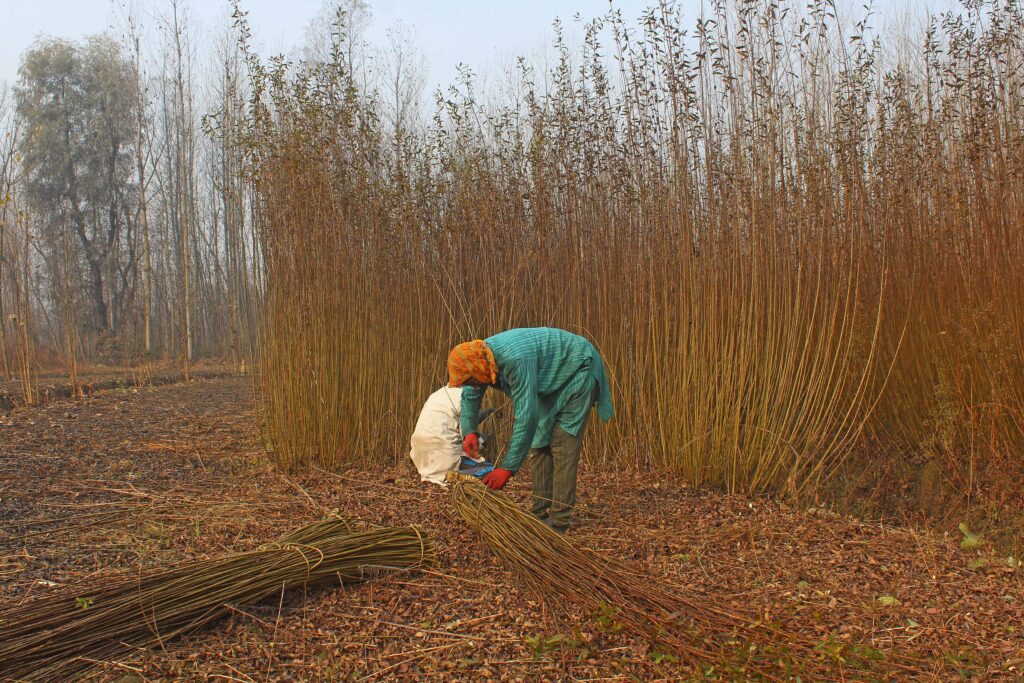
Soura in Srinagar City
